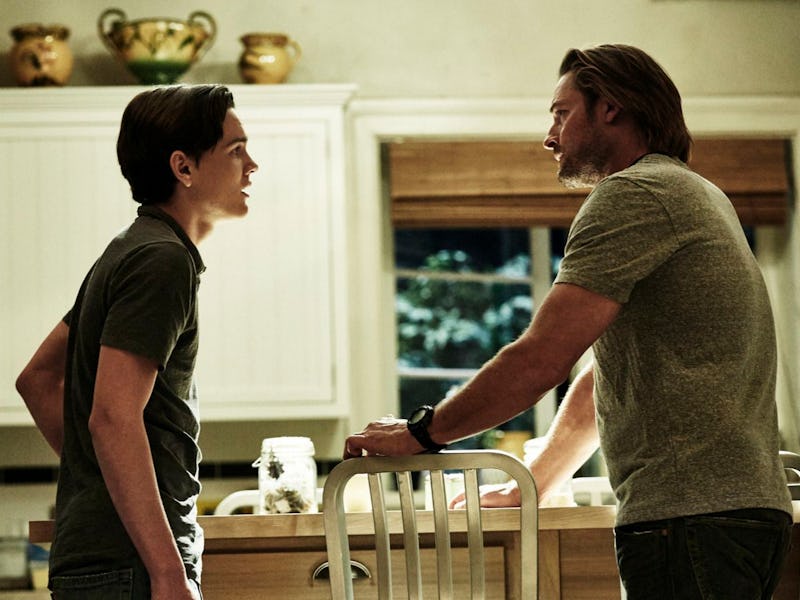'Colony' Predictably Removes Its Most Interesting Player
The alien-occupation drama pulls another rug from under our feet in "Blind Spot."

Warning: spoilers to follow.
It’s becoming increasingly clear that Colony hopes to take our focus away from the aliens — of which we finally got a brief premonition last week — and place it firmly on the struggle between humans to “trust” one another. For every one thing Episode 4 did well, there were two overwrought lines reiterating that in Carlton Cuse’s dystopia, morality is relative, and tough decisions have to be made.
The chief mouthpiece of this sentiment — the character for whom pragmatism is a way of life — is Phyllis (Kathy Baker), Will’s boss/confidante. She understands the workings of the Resistance, as she empathizes with them as human beings who are attempting to figure out how to react to a situation in which they really have no power. The Resistance wants to affect change, but in the end, the victories they win on Earth — against their own people — will be of no consequence to the visitors who hold all the strings. Phyllis’ belief is that insubordination and rebellion could begin a domino effect, angering the hosts and putting thousands of lives in danger. She’s not wrong, either. As she says, there’s a cost to chasing an ideal: “There’s no version of an effective resistance; there’s just misguided idealism that leads to death and despair.”
Phyllis’ position was perhaps the least defensible one at the beginning of the show. (How could someone work with the invading aliens threatening to destroy them at a whim?) Little by little, Colony has made that choice the most rational one one.
The revolutionary spirit of the grumpy older man, Quayle (Paul Guilfoyle) is an easier position to root for — until Quayle forces Katie to rat Phyllis out, and sends Broussard to kill her in cold blood. When it resists its more saccharine impulses, Colony is actually great at pushing its characters to their moral limits. As Phyllis, herself, says to Will: “People have a psychological need to find a supervillain … the reality is usually a lot more complicated.”
Obviously, the takeaway from Phyllis’ death is meant to be: “In this society, anyone can die at any time. Dreams are stubbed out fast.” Baker’s character’s three-dimensional empathy as a government official is, in this society, something of a dream — a rare gem. Few characters remaining have felt as deep as Phyllis. Of course, as soon as we realize that she’s the most interesting individual on the show, she’s taken from us.
The impact of her death is meant to be viscerally sickening, and to make a point about the unforgiving universe in which Colony takes place. But that kind of shock tactic — on TV like this — has become a stereotype in itself. Viewers now go into dramas like these expecting that people can die at any time. USA’s own Mr. Robot played with this new trope of the sudden death all the time. The moral gray zone Phyllis inhabited while she was alive was infinitely more interesting than gambits like this. So let’s mourn her death, and hope that the other characters grow to be as rich as she was, for the remaining half of the slow-burn that is Colony.